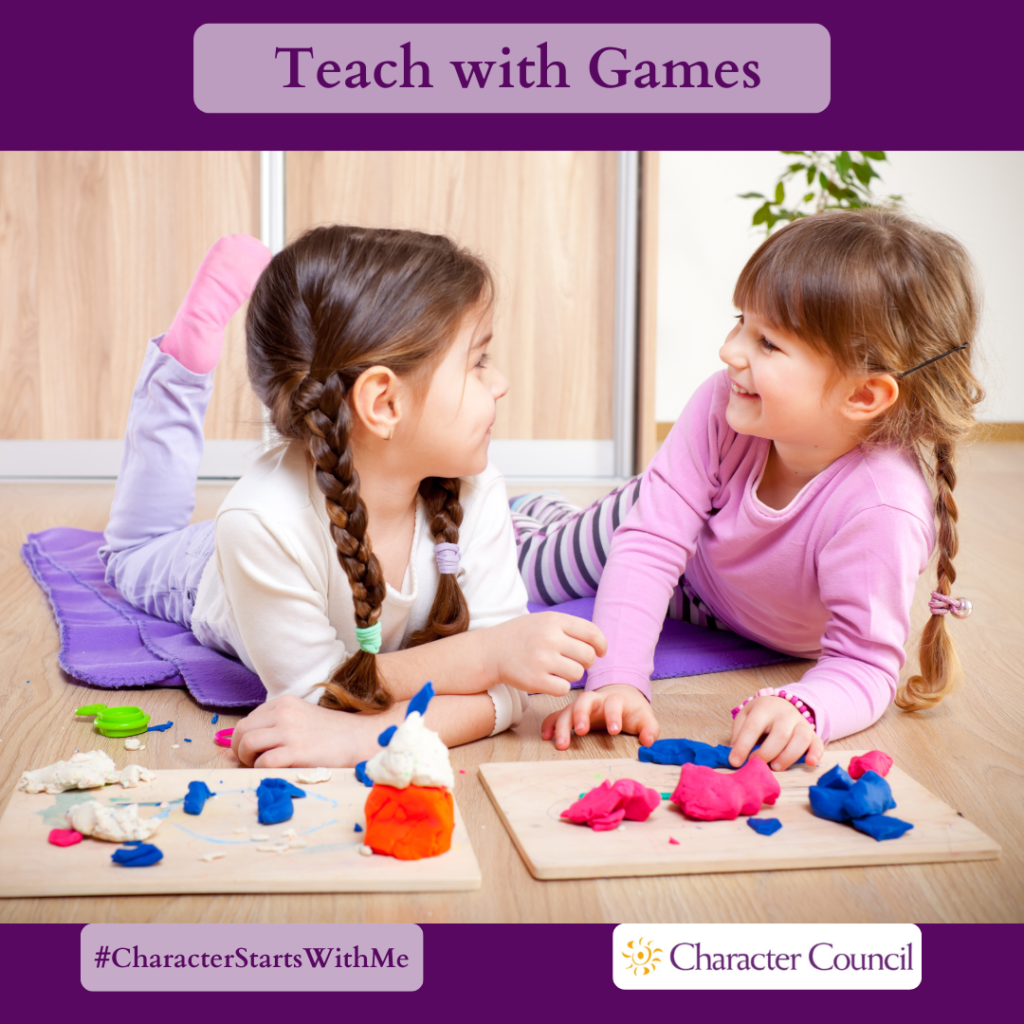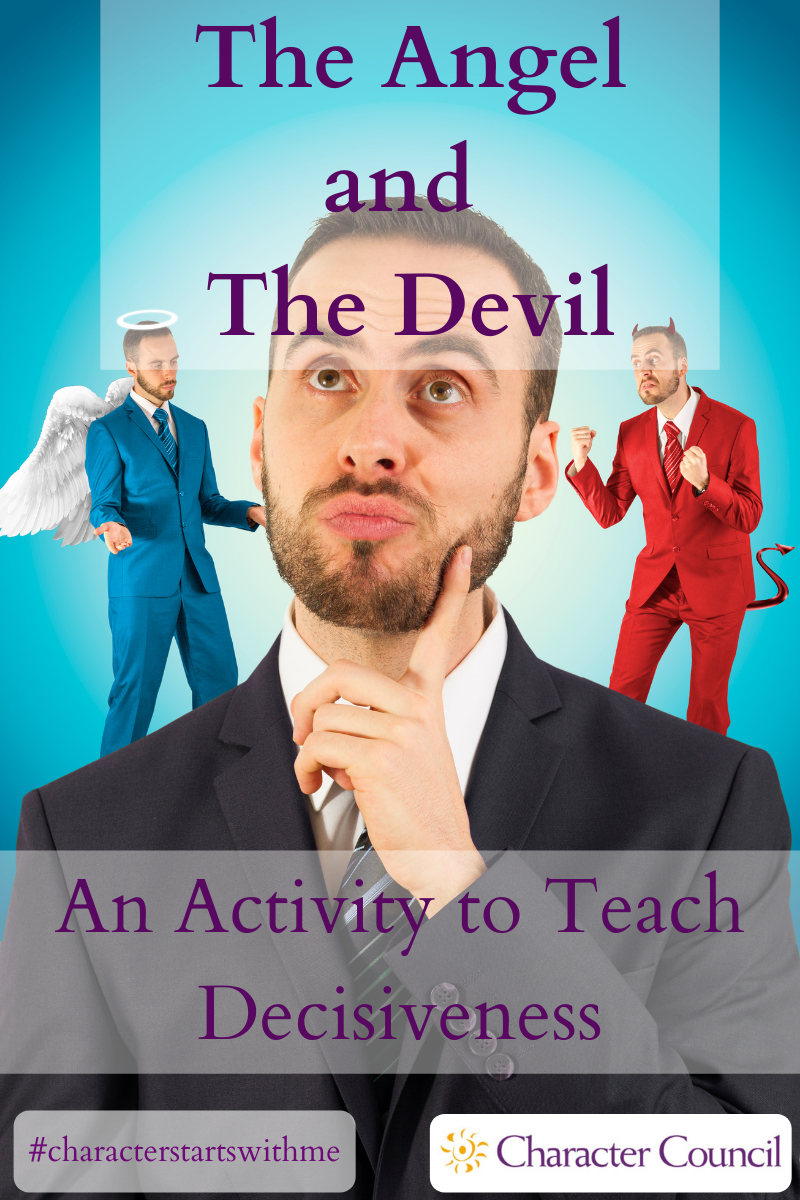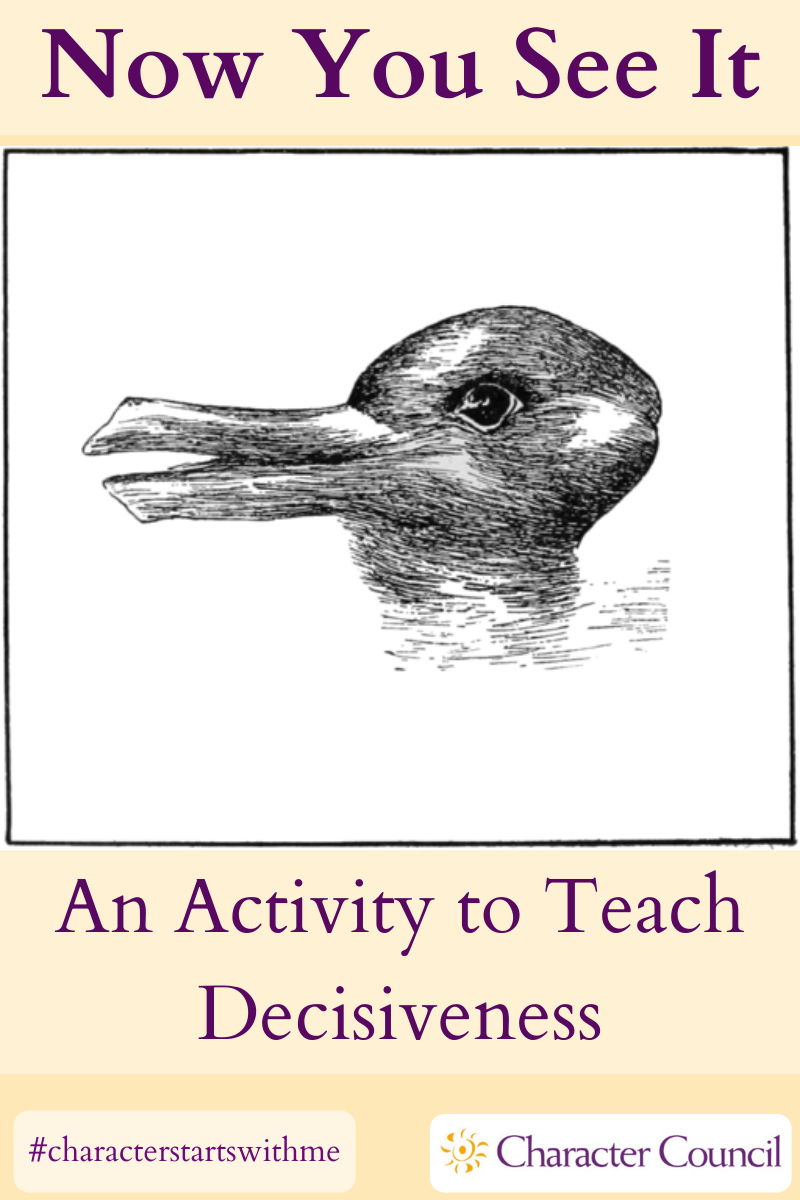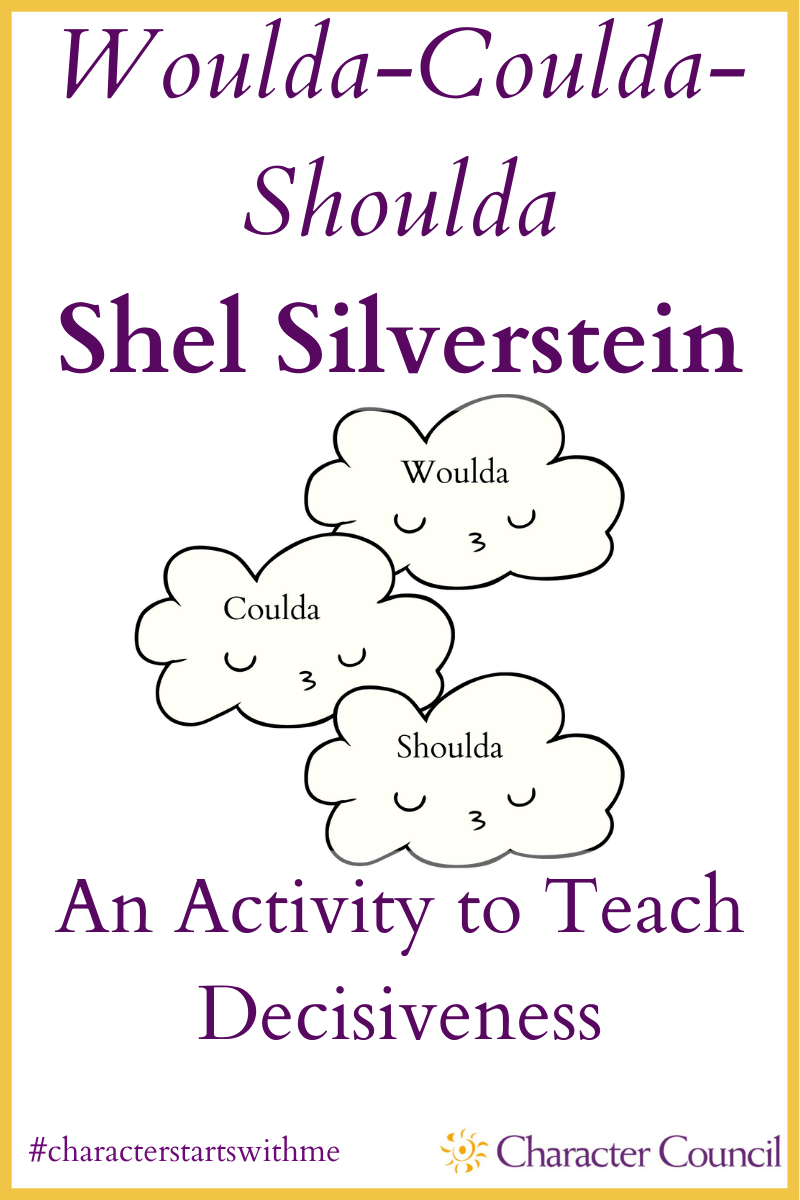
Decisiveness Activities
The activities here are fun ways to teach character. The game aspect makes the lesson more memorable. Each activity has processing questions at the end. Without processing the activity, the exercise is just a game. To make it a stronger lesson when you process it, relate the character quality to a core value that your organization promotes.
Consider picking a student to run the activity. You will need to give them time ahead of the activity to prepare. Another option is to pick a few students to run the activity for a younger classroom after you have run it for your class. Encourage your students to repeat it in the home for younger siblings or even parents.


The Angel and The Devil
This exercise will look like cartoon decision making with an angel on one shoulder and the devil on the other giving you conflicting advice. You will need 4 playing cards (no face cards) and a blindfold for this exercise. (My blindfold of choice is to wind toilet paper around their head just covering their eyes. Be sure not to re-use on another student.) Choose one student to be blindfolded, one student to be an angel, and one to be the devil. Do not choose students who would easily be identified in either role. Assign the roles of angel and devil so that the blindfolded student does not know which one is which. Now place the 4 playing cards face up in any order. They do not have to be 4 cards in sequence, any 4 numbered cards will do. The object of the game is for the angel to give instructions to the blindfolded student on how to put the cards in numerical order. The job of the devil is to give false instructions. The blindfolded student must decide who to listen to when ordering the cards. When the blindfolded student believes to be done, allow the blindfold to be removed.
To process the activity, ask these or similar questions:
To the blindfolded student:
- How difficult was it to tell if they were getting good advice or bad advice?
- Did you use the reaction of the class to the instructions as to any indication if it was good or bad?
- Did the devil make any slip-ups and at one time say a card was higher then say that it was lower? (Liars have to have great memories to avoid contradicting previous lies.)
To the Angel:
- How did it feel when the Devil contradicted you?
- How did it feel when the blindfolded student did not listen to you?
- How did it feel when the blindfolded student did listen to you?
To the Devil:
- How hard was it to lie to a classmate?
- How did it feel when the blindfolded student did not listen to you?
- How did it feel when the blindfolded student did listen to you?
To the class:
- How hard do you think it was to be the blindfolded person?
- Did you hear any inconsistencies from the Devil that the blindfolded person did recognize?
- Was it hard to watch a classmate straight out lie to another classmate? Did you want to offer advice?
- Peer pressure can be difficult to ignore. The next time you are pressured, will you remember the angel and the devil and use your gut to choose wisely?

Now You See It
The picture in the download is the classic rabbit/duck optical illusion. You can use any illusion you want but this one is easy to describe how to look for the animal you didn’t see. Print out the download and walk it around the classroom, asking the students to write down (or remember for non-writers) which animal they see. Ask them to remain silent so as not to give away the answer to others. Some will see the rabbit. (He is looking to the right and his ears are pointing left.) Some will see the duck. (He is facing left, and his beak is facing left.) After all the students have recorded/remembered their answer, poll the class to see what they saw. Walk the picture around again and see if the students can see both animals.
To process the activity, ask these or similar questions:
- Was that fun to see two different animals in the same picture?
- Could two different people look at a situation and see it differently?
- Why do you think children and adults can see things differently?
- When you need to make a decision, do you think an adult may be able to see a situation from a different perspective and give you good advice?Final thought:
Making good decisions requires collecting data from trusted sources and processing that data into a decision. Discussing why a parent, teacher, or trusted adult feels a certain way can lead to discovering information that helps one to make better decisions.

Woulda-Coulda-Shoulda by Shel Silverstein
All the woulda-coulda-shouldas
Layin’ in the sun,
Talkin’ ‘bout the things
They woulda-coulda-shouldas done …
But those woulda-coulda-shouldas
All ran away and hid
From one little did.
Use this poem to prompt the students to identify the woulda-coulda-shouldas in their life and then make one resolution to take some action that will turn one of them into a Did. For younger students, have them reflect on the past week to look for something they can decide to do differently.
When finished, process the reading with these or similar questions:
- What did you think when I read the title?
- What are woulda, coulda, shouldas? Can you give me some examples?
- What did he mean when he said they were layin’ in the sun?
- Can you picture woulda, coulda, shouldas laying around in your room, in the house, or even in your desk here at school? What does it feel like to have those hanging around you?
- Why is one little Did so scary to the woulda, coulda, and shoudas?
- Do you think if you did just one little task of a bigger project that it would chase away a woulda, coulda, shoulda?
- Have you ever procrastinated so long on a task and then when you finally did it, it didn’t take very long, or it wasn’t hard to do?
- The next time you procrastinate on a task will you remember the woulda, coulda, shoulda and do at least one thing toward the task?
To reinforce this thought, you may want to hang some pictures in the room with woulda, coulda, shouldas that are appropriate to your classroom. They could even be from the examples the students gave and could even be their handiwork. Here are some ideas:
Coulda: I could have gotten a higher grade on my spelling test if I had studied.
Woulda: I would have picked up the trash in the hall but I didn’t feel like it.
Shoulda: I Should have been nicer to my sister and shared the cookie.